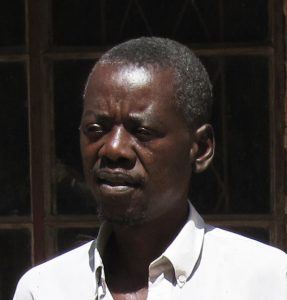Introduction
Murawo Tembedza was a talented mbira player, and an mbira maker who tried to carry on the legacy of master mbira maker John Kunaka, Tembedza’s relative. Sadly, Tembedza died in 2010 at the age of 53.
When Tembedza played mbira, he noted that it is only an instrument that obeys instructions of the ancestral spirits and said that all his joy came from successfully bringing midzimu (spirits) during ceremonies. His favorite song was Mukai tiende, saying it made him “aware of the challenges that lie ahead.”
See photos of Tembedza making mbiras.
Recordings Available From MBIRA
Use the link and listen to samples of the album.
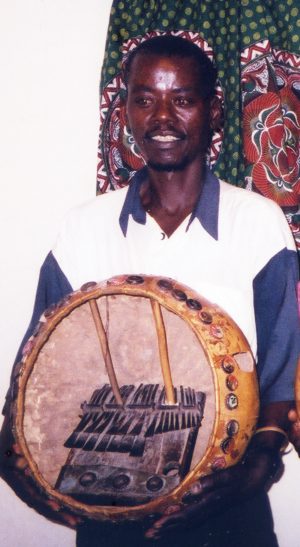
Biography
(written by Denver Banda based on a 2003 interview, edited and updated by Erica Azim)
Early Days
Murawo Tembedza, of the MuRozvi-Moyondizvo clan, was born 23 March 1957 in the Nyamweda region of Mhondoro Communal Area, Zimbabwe.
The seventh in a family with nine children, Murawo remembers his early years as bittersweet. His father was very poor, unemployed, and Murawo was lucky to be one of the few in the family able to attend school.
John Kunaka Comes
Mbira virtuoso John Kunaka, Murawo’s father’s cousin, set up a workshop at the Tembedza home. A master blacksmith, carpenter and mbira maker, Kunaka was able to give some financial support to the family.
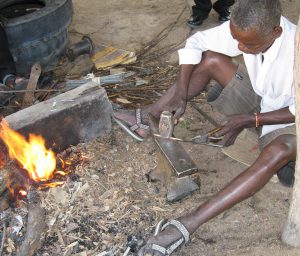
The coming of John Kunaka brought bira ceremonies to the Tembedza home, and Murawo fell in love with the music he heard. At age seven, Tembedza surprised everyone when played Nyamaropa, a song he had often heard being played by Kunaka. He says, “I stole an mbira from the workshop and hid in a 200-liter drum, and tried to redo what I had seen and heard, that is how it came about..”
Learning to Make Mbiras and Play Mbira Better
Kunaka, seeing the potential in young Murawo, took him in as his assistant in the mbira-making workshop. John Kunaka polished Murawo’s mbira playing along with that of his two older brothers, who had an instrument made for him. The three brothers started to play mbira at ceremonies in their Nyamweda area of Mhondoro, and were very much sought after due to their success in bringing spirits to the ceremonies. John Kunaka loved to drink during rest periods at ceremonies, and Murawo and his brothers would take over from their teacher during these times.
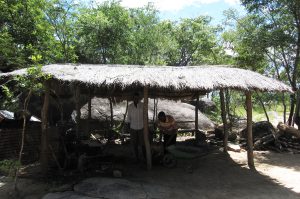
After some time, their mentor began to give the brothers some of the many mbira-playing engagements he was offered. Kunaka’s cousins Erick and Mondrek Muchena became his playing partners, adding some competition as Murawo and brothers wished to be Kunaka’s first choice to play with.
The Tembedza brothers managed to help their family with the money earned playing at ceremonies. Murawo was particularly known in his family for bringing his father’s spirit with his version of the song Nyamaropa, including extensive bass lines.
Impact of War
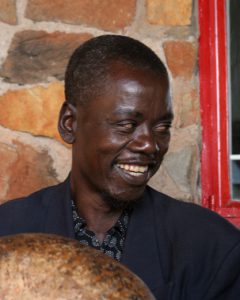
Murawo’s mbira teacher, Kunaka, was killed by the Rhodesian army in 1978 during Zimbabwe’s liberation war. This was a great misfortune for the family, because the army burned the home and the workshop along with all the instruments. With no teacher and no mbira, Murawo found it difficult to cope, but in 1979 managed to build his own mbira using the skills he had developed as Kunaka’s assistant.
In 1987, his brother Norman invited Murawo to work at a city factory, where they worked as coach builders and gas and arch welders. This exposed Murawo to many metals which he later incorporated into his mbira making. Though he earned a little money at his job, he supplemented his earnings with proceeds from the sales of his mbiras and his mbira performances at ceremonies in the city.
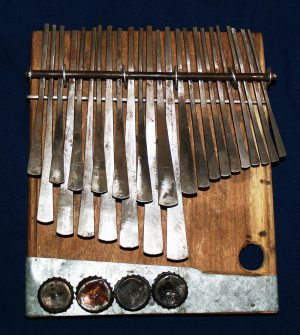
Making Mbiras on His Own
Life began to improve for Tembedza in 1999 when Paul Berliner, an American ethnomusicologist whom he had met as a child, asked him to make mbiras in the style of Kunaka, and helped him to set up a workshop similar to Kunaka’s original one. After that, Tembedza’s instruments gained popularity both locally and internationally, and were sold by MBIRA until his death in 2010. See photos of Murawo Tembedza at work making mbiras.
Tembedza taught his four sons to make and play mbira, though none of them have continued his mbira making legacy.
He worked full time making and playing mbira, and farming. Earnings from the sale of his instruments helped to educate and feed his family.
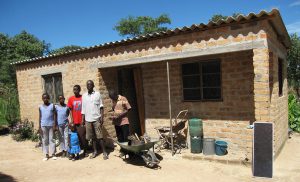
Tembedza also used the preceeds of his mbira sales to build a three roomed house with solar electricity, and bought cattle and a “scotch cart”. He said, “When I worked in the city I never made much, but now my children are able to have what I never dreamed of owning.”
